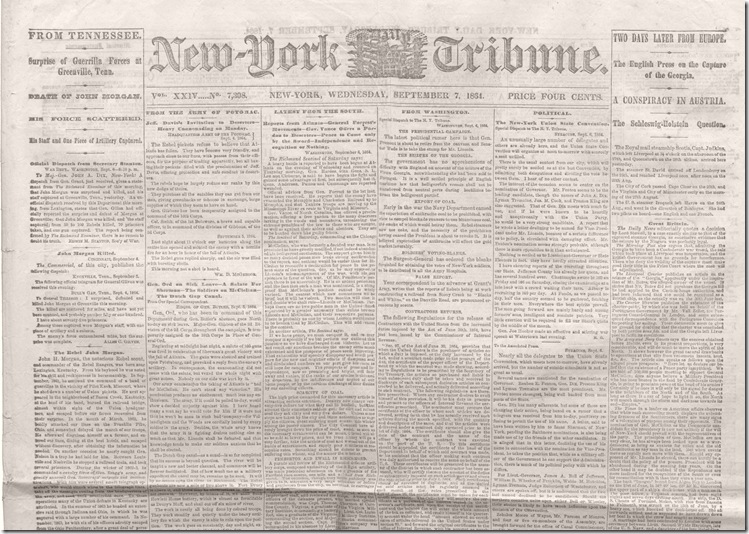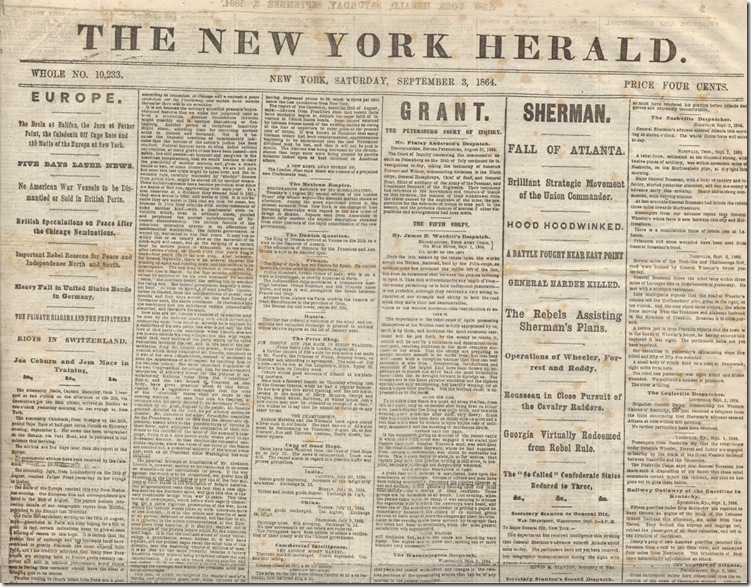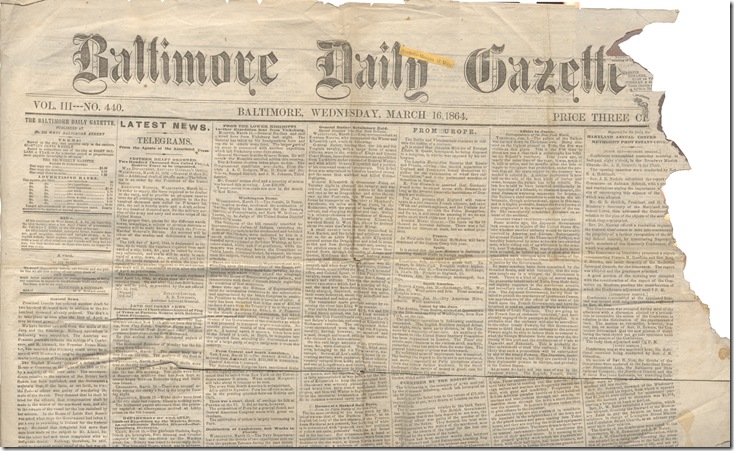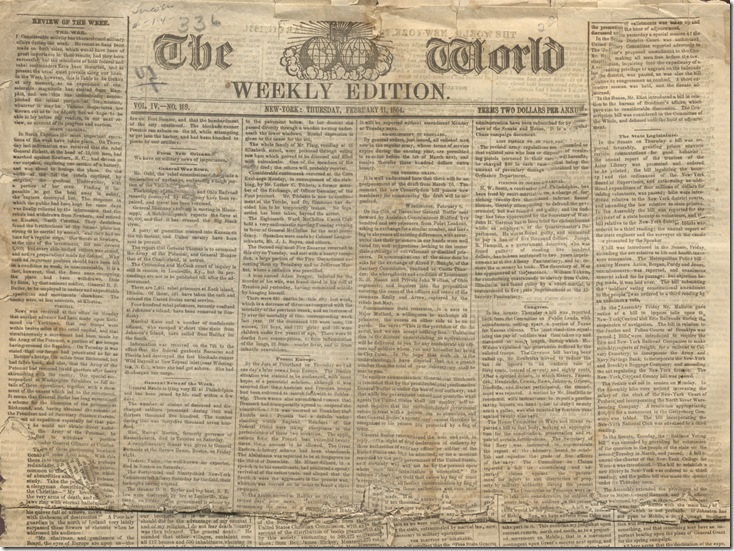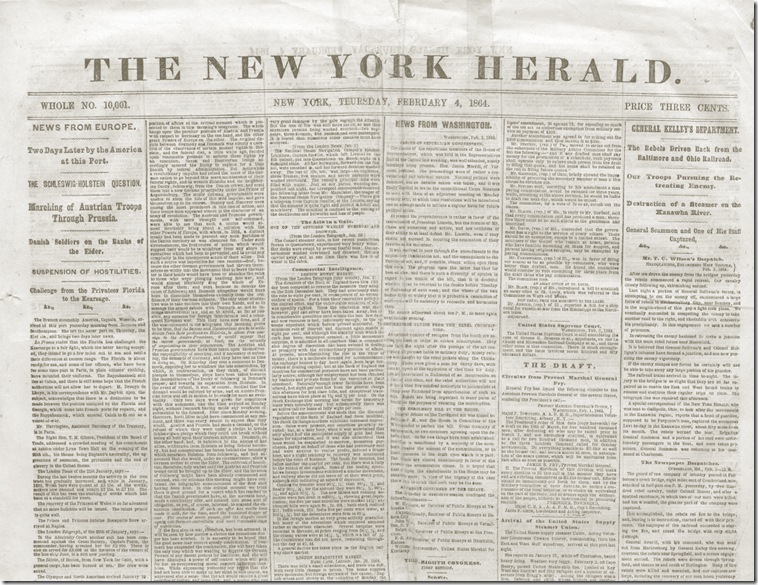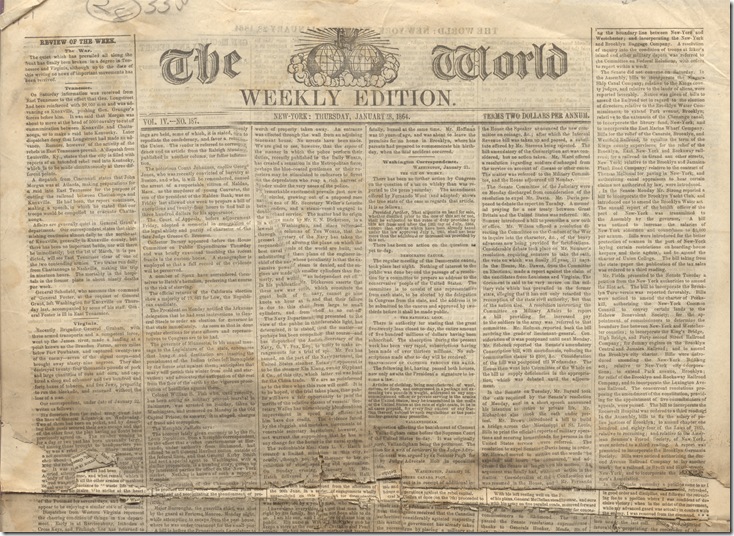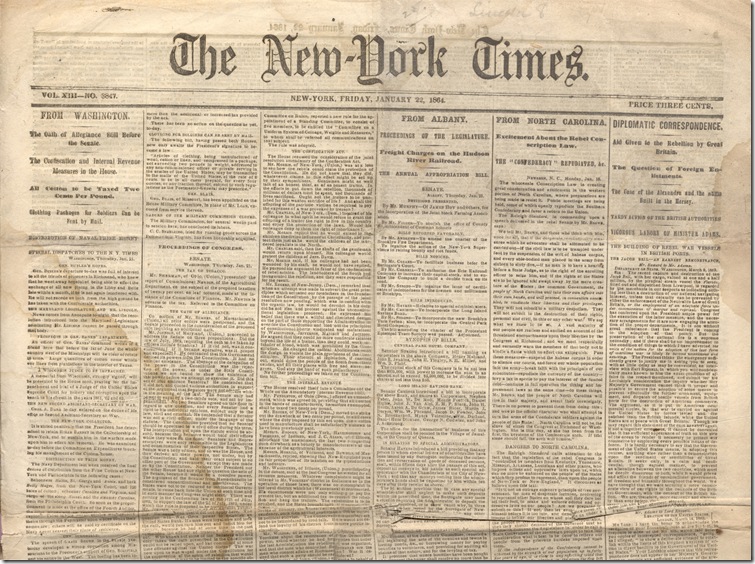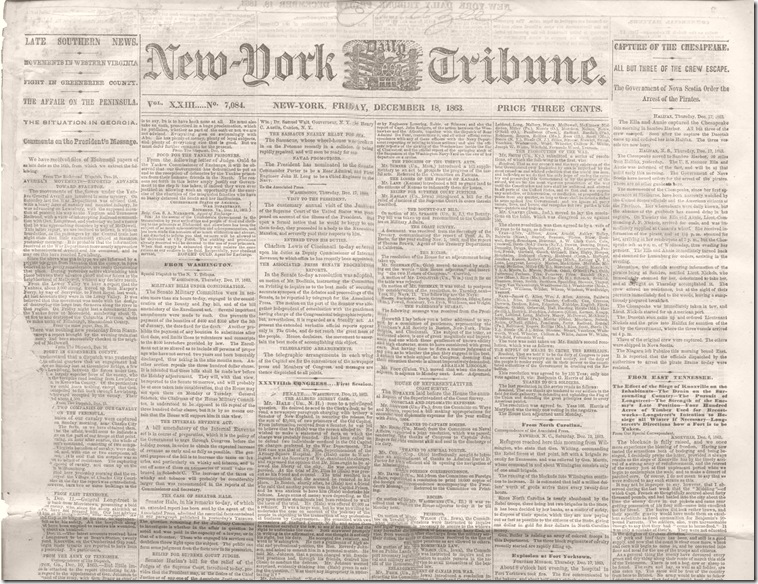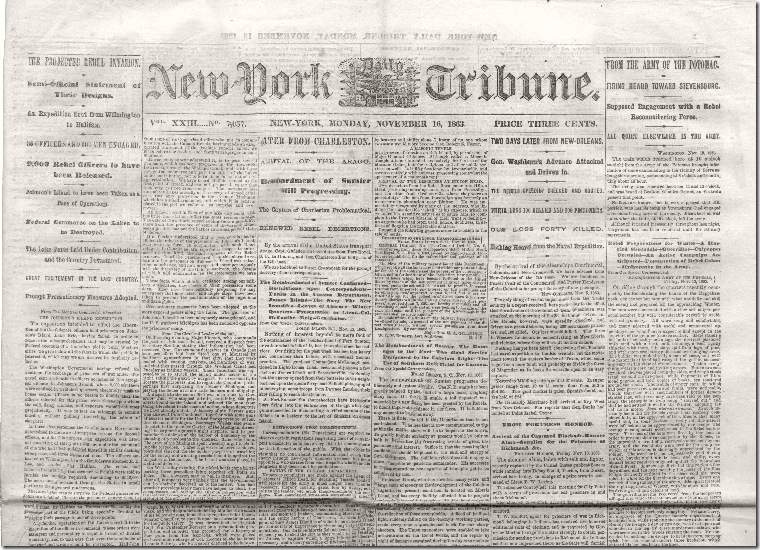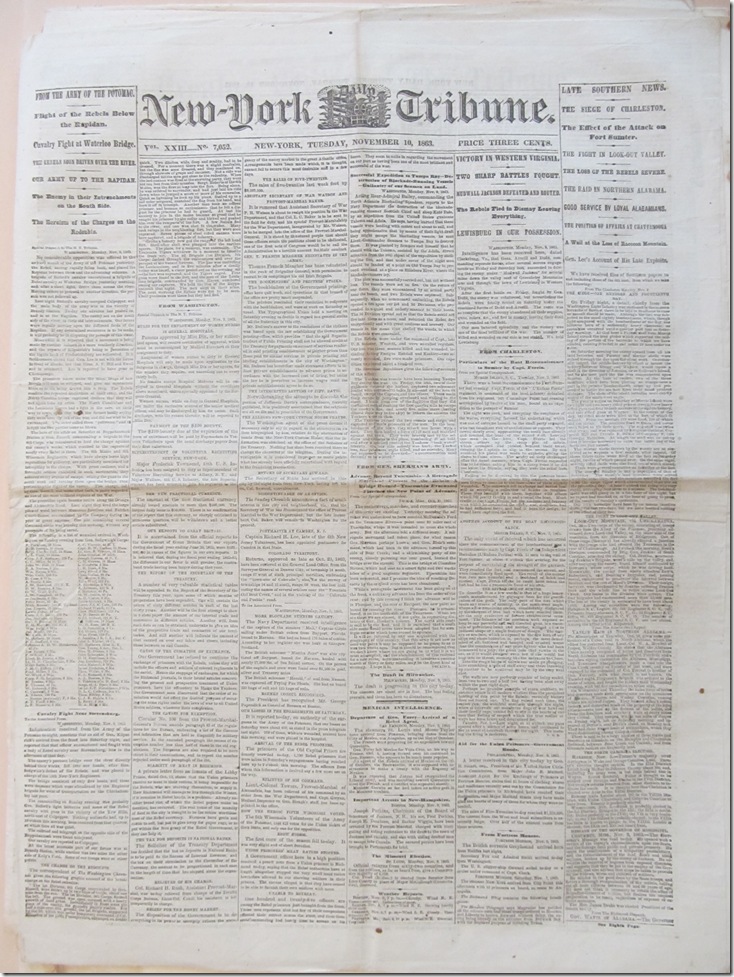Transcript (excerpt):
Page 1, Upper Half
Official Dispatch from Secretary Stanton.
War Dept., Washington. Sept. 6 – 8:10 p.m.
To Maj.-Gen. John A. Dix, New York: A dispatch from Gen. Grant, just received, gives a statement from The Richmond Examiner of this morning, that John Morgan was surprised and killed, and his staff captured at Greenville, Tenn., yesterday. An unofficial dispatch received by the Department this morning, from Lexington, states that Gen. Gillon had officially reported the surprise and defeat of Morgan at Greenville; that John Morgan was killed, and the staff captured; from 50 to 100 Rebels killed, 70 prisoners taken, and one gun captured. The report being confirmed by The Richmond Examiner, there is no reason to doubt the truth. Edwin M. Stanton, Sec’y of War.
Citation: New York Daily Tribune. 7 September 1864. Gift of Steven and Susan Raab.
